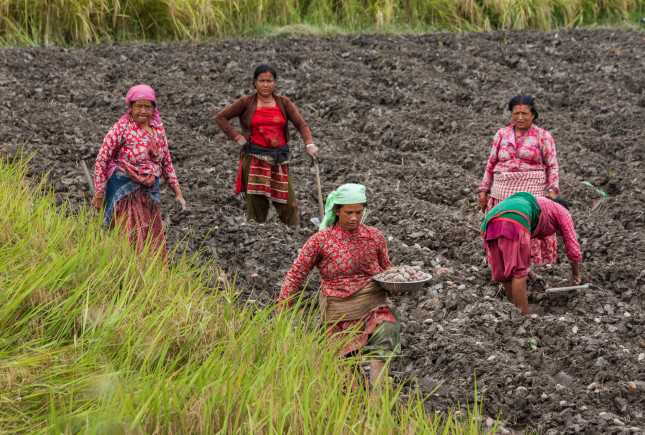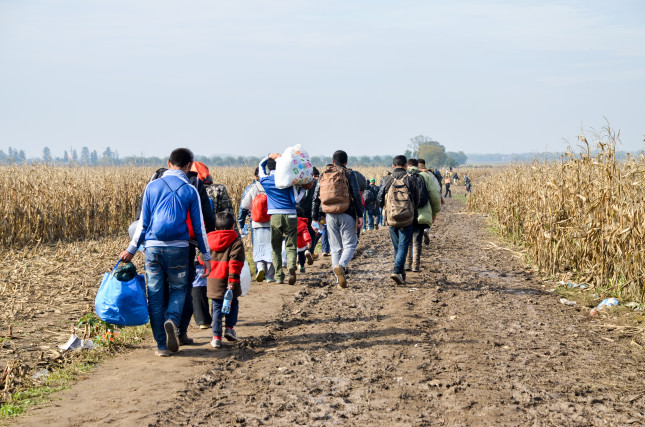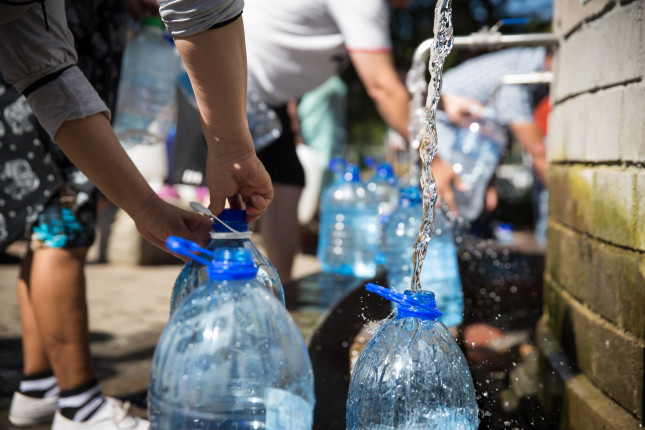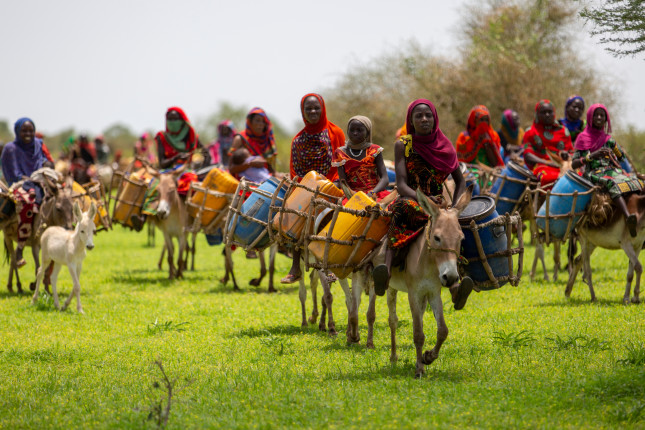-
Guest Contributor
Getting Back on Track with Global Poverty Reduction
MORE
No country has escaped the setbacks caused by COVID-19, but impacts on low-income countries are proving far worse. The World Bank estimates the pandemic and the actions necessary to contain it will drive 150 million people globally into extreme poverty. Post-pandemic, there will likely be long-term effects. Even with this grim reality, there is hope. Governments and international development organizations have accumulated a wealth of knowledge about what works to reduce poverty and increase economic activity. As the Biden administration and other actors work to build a post-pandemic environment, key lessons can be drawn from this knowledge to inform recovery efforts.
-
On the Beat
Recommendations for the Biden Administration on Climate Migration
MORE
“There is little doubt that tens of millions of people will be displaced over the next two to three decades due in large measure by disaster and other environmental changes affected by climate, with the majority displaced within the borders of their own countries. The United States has a special responsibility to lead on issues of climate change, migration, and displacement,” said Eric Schwartz, President of Refugees International, at a recent event presenting a Blue-Ribbon Task Force report on climate change and migration.
-
China Environment Forum
Energizing Zero-waste Practices in Rural China: Q&A with Chen Liwen and Qiu Yuxue of China Zero Waste Village
MORE
Growing up in Xicai village in rural Hebei Province, Chen Liwen spent plenty of her childhood outdoors, where she cultivated a deep connection with nature. This connection eventually led her to pursue a career working at environmental NGOs. Early in her career while she was surveying landfills outside of Beijing, she discovered “mountains” of putrid waste that were leaking into waterways, making nearby residents sick. That incident sparked her to focus her work on reducing waste and waste pollution. After working on urban waste issues Chen became concerned that pollution reforms to expand waste sorting and recycling in cities were not extended to rural areas, where 40 percent of China’s population live.
Topics: China Environment Forum -
Africa in Transition // Guest Contributor
Heteronormativity in the International Development Sector and Why We Need to Get Over It
MORE
After enduring sexual violence in the DRC conflict, Steven Kighoma fled to Uganda where he became an activist with the NGO, Men of Hope Refugee Association, supporting male victims of conflict-related sexual violence. The experiences of male victims include rape, being forced to watch family members being raped, being beaten on the genitals, and enduring other kinds of abuse. Compounding their trauma, men who have suffered sexual violence in the region are often seen as not properly masculine and face homophobic violence and criminalization, regardless of their sexual orientation. In addition, they face exclusion from survivor support services which assume that only women face sexual violence.
The biggest challenge is “the ignorance of the government, the medical institutions, the community, not knowing a male victim of sexual violence exists,” says Kighoma. “There is a confusion when you talk about male victims of sexual violence. People confuse it with homosexuality.”
-
Sustaining a climate for peace
MOREJune 14, 2021 // By Wilson Center Staff -
Guest Contributor
Will COVID-19 Accelerate Urban Water Security or Insecurity?
MORE
“Never let a good crisis go to waste,” said Winston Churchill. Like other acute stressors, the COVID-19 pandemic acts as a multiplier of chronic or pre-existing vulnerabilities, such as the challenges of servicing rapidly growing informal populations, particularly in urban settings. This multiplier effect may accelerate water insecurity at unprecedented levels. However, together with UNESCO Intergovernmental Hydrological Program (IHP), we’re reflecting on the possibility that COVID-19 can act as an accelerator of positive action toward achieving Sustainable Development Goal 6 on water. The nexus between issues and urban water security is particularly important.
-
China Environment Forum
A Tale of Two Snails: Biodiversity Threats of Invasive Species in the United States and China
MORESpring is the best time to eat snails, when they are their plumpest, sweet and rich in protein. Snails have been slurped in China for centuries and are an inexpensive treat for a holiday celebration. In contrast to French escargot, which is served with butter and garlic, the Chinese eat snails in stir-fry, braised or boiled and eaten right from the shell. Not all snails are a treat, however, and unfortunately some are extremely damaging to crops and natural ecosystems when they are introduced into a non-native environment.
Topics: China Environment Forum -
What You Are Reading
The Top 5 Posts of April 2021
MORE
Water diplomacy has brought increased attention to both water governance and water-related challenges and risks. Women’s leadership in water governance remains a salient issue as the field strives to bridge the gender gap. In this month’s top post, Marisa O. Ensor finds that while the field remains male-dominated, recent events and related publications contribute to bridging this persistent gender gap.
Topics: What You Are Reading
 A Publication of the Stimson Center.
A Publication of the Stimson Center.










